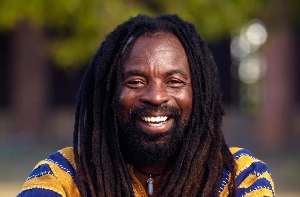By Bernard Asubonteng
Following closely the actions of the Confederation of Africa Football (CAF) evoke images of embattled, incompetent, and corrupt die-hard despot struggling hard in the face of inevitable realities to stay relevant. Even to say that CAF is relic of the past is a massive understatement. Seriously, of what use is CAF vis-à-vis modern Africa soccer development? This is an important question or issue for those of us who really care to see Africa football development evolves from its mediocre stage into the modern realities.
To begin with, like its mentor-Fifa, CAF’s leadership is full of cronies and corrupt to the core! To be fair and unlike the Fifa though, CAF is bereft of modern ideas; and, it’s a copycat organization that lacks originality. This Africa highest soccer body cannot help itself mimicking every darn thing Fifa does or tells it to do. As a result, Fifa, with a bit of contempt, has been taking Africa soccer and its highly talented players for granted.
No one is suggesting that CAF should decline to team up or collaborate with Fifa and other world sport organizations on many initiatives to ensure soccer development on the global scale. But on the micro-continental level, CAF should have realized long time ago that Fifa’s true interests do not reflect Africa soccer development per se. This means that CAF should have pursued policies and initiatives that are more independent, and do not play second fiddle to any organization but rather it is seriously pursuing creative and modern initiatives which have the tendencies to catapult African soccer to the higher heights possible.
In fact looking unemotionally at CAF’s activities over the past years, one comes to the realization that the African soccer body’s leadership is devoid of creativity, forward-thinking, and freshness. For instance, as soon as Fifa releases its monthly rankings, CAF, like a typical copycat, follows suit by adjusting its Africa national teams’ rankings to reflect that of the Fifa. Thus, depending on which country in Africa is the highest on the Fifa’s rankings, CAF dutifully makes sure that this same country occupies the top spot on its rankings. Going by that Fifa current monthly ranking logic (June 2012) for example, why CAF then didn’t put Zambia on top of its June 2012 rankings? After all, this copper-rich nation (Zambia) beat Cote d’lvoire (with all due respect to Drogba and co) and won the African Nations Cup almost the same way Spain defeated Euro 2012 nations to lift the ultimate cup.
The foregoing feeds into the general perception about how CAF’s leadership is not capable of taking any bold and original measures to bring Africa soccer on par with its European counterparts. For example, what incentive there is, and how do you seriously boost and creatively motivate soccer talents in African continent when at the end of almost every year the top or the most prestigious soccer prize (African Footballer of the Year) is normally awarded to one of the so-called professional African footballers playing mostly in Europe? By this commonplace practice by the CAF, is it fair to conclude that the soccer body is tacitly conceding that African football is still in the backwaters of Europe and that nothing can be done about it? Of what use is CAF in our modern soccer development, anyway?
Why can’t CAF reserves the most top soccer prize for the up and coming players back in Africa and create another one but relatively less prestigious for those playing in Europe? That is one of the ways to develop and promote talents in Africa. Yes, those “professional” African players outside the continent are still proud Africans, but we have to bear in mind that they’re no longer playing on the daily basis for any African team except once in awhile for their respective national teams.
Even here some of them after using their national teams to gain fame and get lucrative soccer contracts in Europe often come out with flimsy excuses to avoid playing for their countries. Perhaps we can’t blame them too much because CAF is not providing any clear leadership and vision for Africa soccer development; hence, when these players get exposed to state-of-the-art sport facilities and boundless opportunities elsewhere, they don’t have a choice but to take advantage to develop their potentials.
Again, this traces back to CAF’s widespread cronyism and corruption, including its lack of sense of direction and proper accountability. The CAF’s president, Issa Hayatou and his general secretary, like Fifa, have been in the helm of affairs for years. The creeping cronyism has stifled creativity at the CAF. For some bizarre reasons the organization’s leadership somehow still believes it has something new to offer African soccer after all these years of parroting Fifa’s melodies. Like Fifa’s leadership structure, CAF’s top leaders have no term-limits. They run things even if they’re heading aground; such is the true state of affairs of the CAF. How long can African soccer endure this kind of mediocre and corrupt leadership parading in the corridors of CAF?
This writer/analyst is based in Atlanta, GA. To read the rest of this article, visit his weblog at: www.globalpulpit.com. Or you may reach him at: comments@globalpulpit.com
Sports Features of Monday, 23 July 2012
Source: --
















